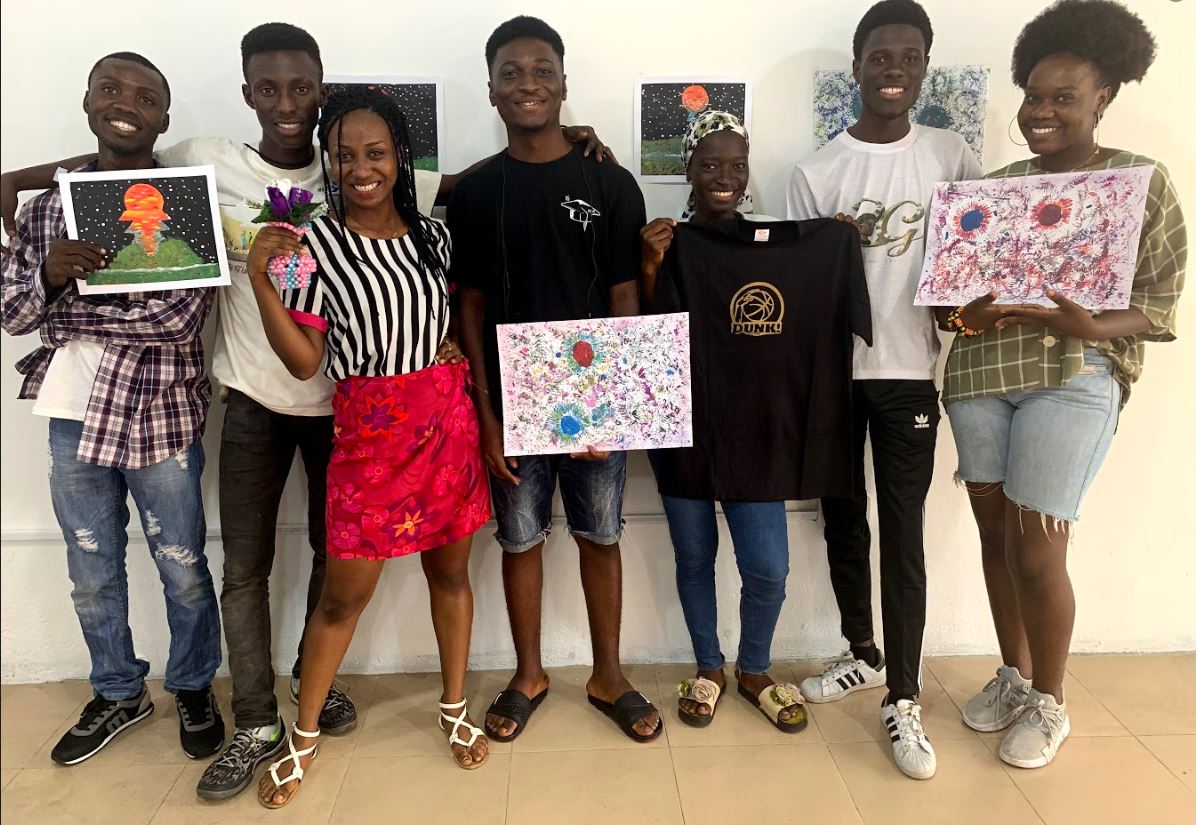
The Chale Wote Street Art Festival has been a treasured part of life for the residents of Accra, Ghana, since 2011. But according to Awurakua Anim, the only downside to the festival is that it packs up and leaves, stripping the entire community of art and creativity.
"In Ghana, there's a belief that the arts are for people who aren't good at school," says Anim. Her own creative pursuits brought her to UAlberta to study Political Science and Sociology in 2016. She wanted to find a way to show the people from her home country that creative pursuits have value.
This pursuit ultimately led Anim to receive a grant from the Davis Projects for Peace, an initiative that aims to promote peace and address the root causes of conflict through grassroots projects. For Anim, this meant setting up a youth centre in a poor neighbourhood in Accra for young people to visit outside of school hours to explore artistic and creative pursuits. The youth centre enables these young people to demonstrate their larger value and helps them develop new and transferable skills.
The Davis Projects for Peace first launched in 2007 when author, scholar, and philanthropist Kathryn Wasserman Davis turned 100 years old and pledged $1 million dollars to 100 projects focused on bringing new thinking to the prospects for peace. Through her initial pledge, the Davis Projects for Peace organization has helped hundreds of social initiatives all across the globe launch and make a difference in their individual communities, and ultimately make a difference for the world at large.
UAlberta International (UAI) has been supporting peace-building through funding from the Davis Projects for Peace since 2007. It was through living in International House that Anim was able to discover the funding opportunity with Davis Projects for Peace, which is available only to residents of International House. She saw a post on Facebook from Global Education Coordinator Leslie Weigl, linking to information about the Davis Project of Peace. Anim wasted no time connecting with Weigl to find more information and begin the application process for funding.
"Through my connections with faculty and staff at UAI, I was able to meet with an accountant to help with all the finances required to run this program," says Anim. "For me, this entire experience has taught me so many things I would have never otherwise learned and I feel fortunate to learn about the other logistics when it comes to launching a project like this."
After spending last summer in Accra establishing the centre, Anim has continued working on her project in Ghana remotely from UAlberta campus. More than 100 youth have dropped into the centre and taken part in art projects. The team overseeing the space has even begun discussing selling many of the art pieces and making t-shirts to further support the space, with all funds going back into the programming and to pay for art supplies (which are very expensive in Ghana). Anim points out that making money off of their art projects will show the youth some of the value in what they create.
"So many people in Ghana don't understand the real value in art and expression and simply cast it aside as a lesser pursuit compared to mathematics and science," says Anim. "I want these youths to understand that they can contribute to their communities and make a difference in their lives."
Though Anim is on the other side of the globe from Ghana, she hopes to return after the semester is done to see how the youth space has come along since she last visited. She explains that the area of Ghana where she grew up is much more affluent compared to the neighbourhood that houses the youth art centre, and that working on this project has exposed her to many parts of Ghana she had never experienced before. As she explains, what she's seen and experienced working on her contribution to the Davis Project for Peace is the most valuable takeaway she's earned.
"I hope Anim's work in Ghana inspires others to look at global issues and to start exploring solutions," says Nancy Hannemann, Director of Global Education with UAI and one of the UAlberta staff members assisting Anim with her initiative. "Everything she's done takes a lot of courage. From formulating a concept to drafting a proposal, complete with budget, finding the time to actually roll out her plan and seeing results so quickly is quite the accomplishment."
Sharing the current Davis Project for Peace initiative at UAlberta helps to highlight how students' efforts contribute toward the achievement of the Sustainable Development Goals, a current top priority for all members of the United Nations.
"The Sustainable Development Goals encompass many global issues we're currently facing such as food security, healthcare, poverty and climate change," says Hannemann. "In addition to highlighting the contribution of Anim, we are pleased to showcase other work of our students and faculty in support of the 17 Sustainable Development Goals (SDGs) during International Week 2020." The Week takes place Feb. 3-7, and features students, faculty and guest speakers on how to achieve the SDGs by 2030.